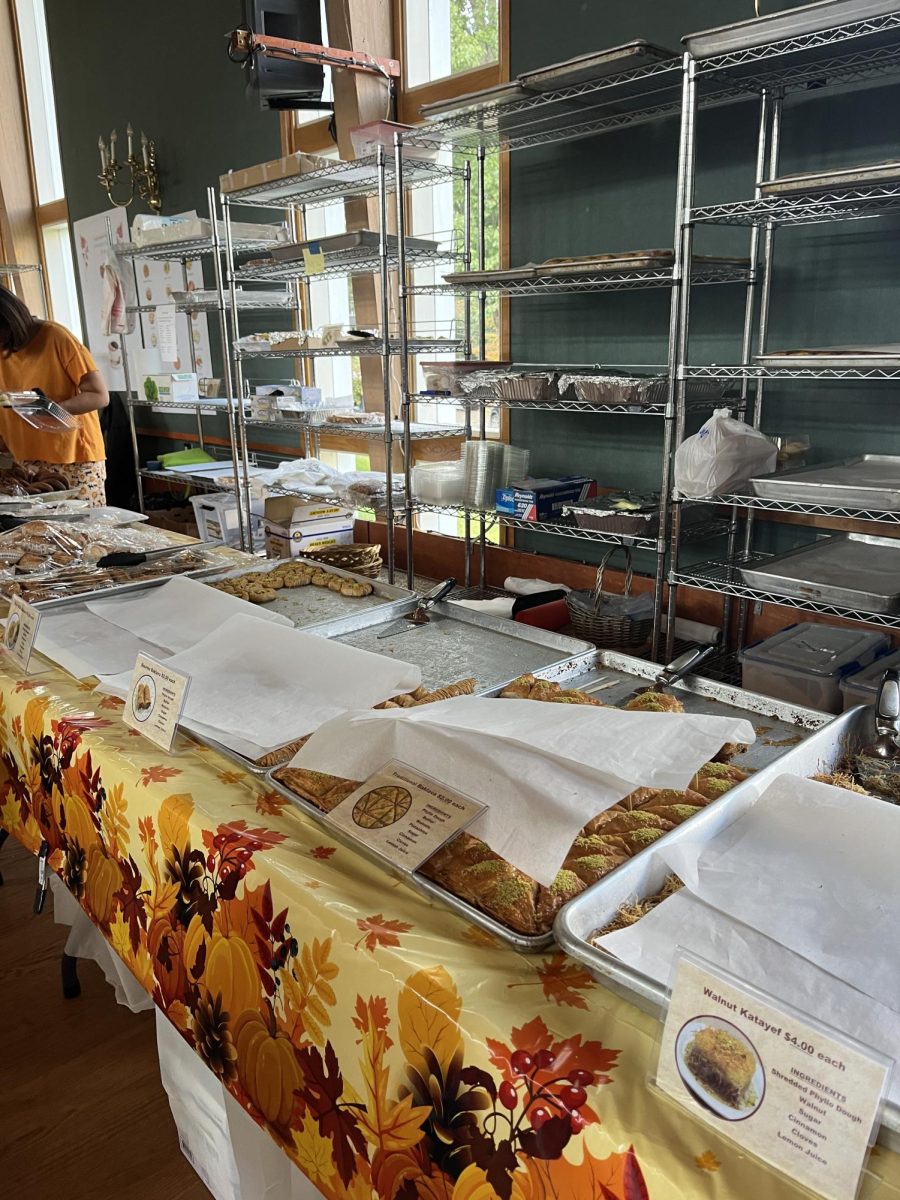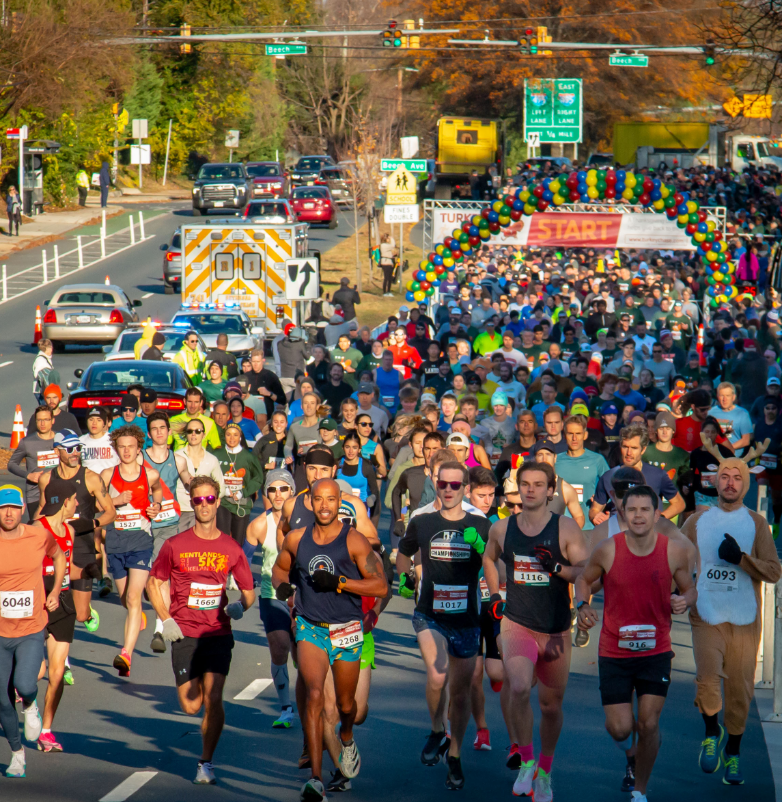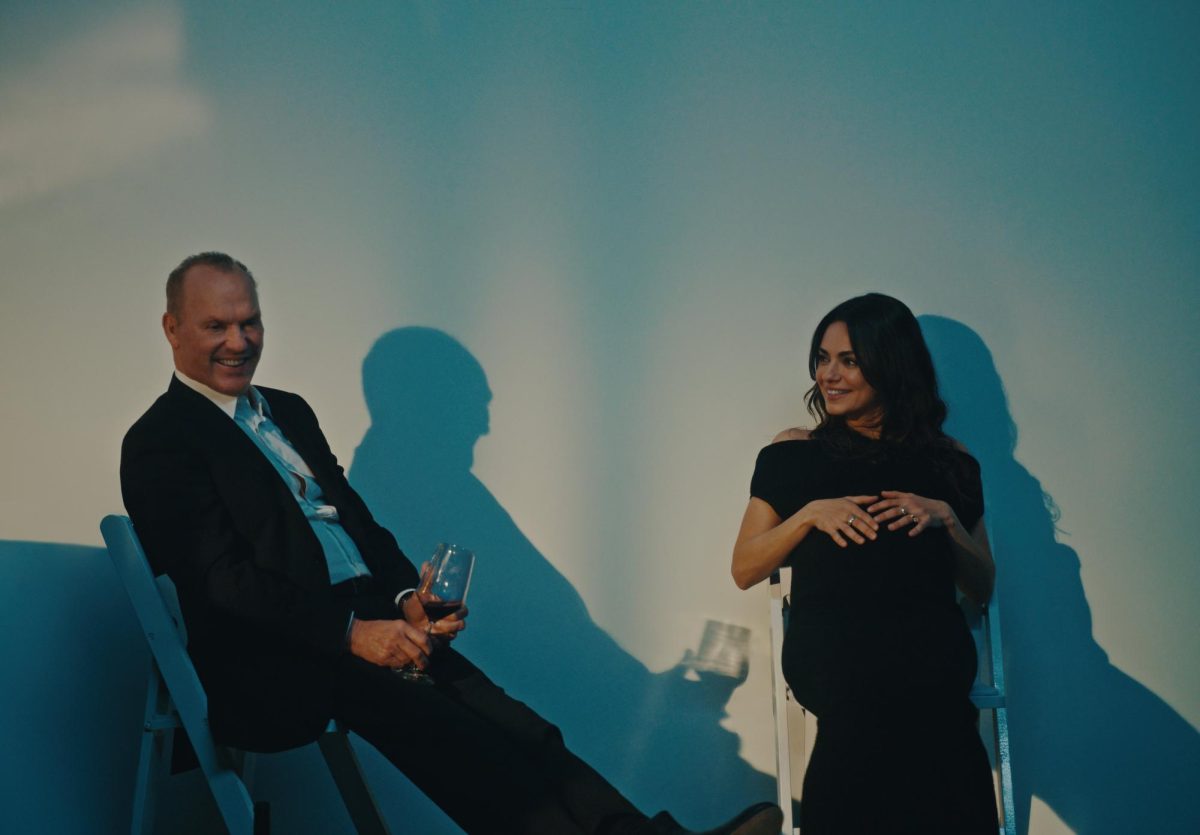“Inchbes es?”
Joyful greetings fill the expansive room at Soorp Khatch Armenian Apostolic Church. Tables scattered around the space hold traditional Armenian cuisine, its aroma filling the air. Guests roam from table to table, sampling various items and browsing a variety of vendors and their goods.
The Armenian Food Festival, hosted annually by the church, has been a gateway for both longtime visitors and new guests to experience the lesser-known Armenian culture. The festival is a fundraiser for the church’s non-profit and volunteer-based expenses, but it holds significant meaning to its organizers and attendees.
The event is a celebration of Armenian culture, showcasing traditional foods and products. With preparation starting weeks in advance, Elda Hacopian, board member and chair of the Armenian Food Festival, has worked hard to make the event successful. She said that visitors from the surrounding neighborhood and regular church members come and enjoy the food and other festivities.
“I think coming together as a community is special,” Hacopian said.
Senior Melina Dorian has attended the festival year after year and said she finds being around other Armenians important. She appreciates the event and the community it provides, especially given that there aren’t many Armenians living in Bethesda, she said.
“Armenians have a beautiful culture, full of life, celebration and joy,” Dorian said. “Some of the most important parts include music, dancing and an emphasis on family life.”
The festival features an emphasis on the liveliness in Armenian culture. With the event spanning hours, visitors can communicate with and meet many people, sharing in the joys of the culture. Returning visitor Galin Tashian has attended the event for years, and values being with other Armenians. She said that her favorite part of the festival is sharing her culture with those around her.
“I love the good food and the good people,” Tashian said. “At night we do singing, music, dance performances so it’s really nice to see that cultural part of it.”
The items sold at the festival, including Armenian rugs, clothes, jewelry and vases also reflect Armenian culture. The artifacts provide a way for attendees to display their heritage.
Celebrating the culture of Armenians is especially important after the Armenian Genocide. In 1915, the Ottoman Empire arrested and executed several hundred Armenians, starting the genocide. From there, Ottoman soldiers tortured Armenian individuals and broke apart families. Thousands were forced to endure brutal conditions, like marches through the Syrian Desert with no food, water, or shelter. By the fall of 1916, 1.5 million Armenians had been killed.
While the festival itself doesn’t have a time dedicated specifically to remembering the genocide, Soorp Khatch Armenian Apostolic Church hosts a service in April to honor Armenian Martyrs Day, a day of remembrance for those who were killed. In 2023, as part of the service, the church laid wreaths, reflecting a tradition carried out in Armenia on the same holiday. Dorian said that remembering the genocide and continuing to commemorate the beauty of Armenian culture is particularly important for her.
“My family has always sought to teach me about Armenian history and especially what my Armenian ancestors had to undergo,” Dorian said. “I think that by being able to recognize this history that my family has experienced, I can better connect with my Armenian heritage.”
As a result of the massacre, Armenians scattered, forming tight-knit communities where they settled. Soorp Khatch Armenian Apostolic Church provides a space for Armenians in Bethesda to connect with their culture and other Armenians. The Armenian Food Festival illustrates their dedication to moving forward while still remembering the past.
“I want others to know that Armenians are proud of where they come from and embrace their heritage,” Dorian said, “because they recognize [Armenia’s] beauty and spirit.”
















